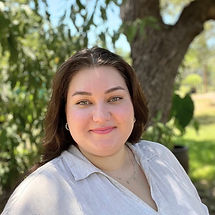Austin Counseling and Nutrition is a group practice of inclusive therapists and dietitians who specialize in helping people improve their mental health and related issues.
_______________________________________________
You do not need to have an eating disorder to receive services at ACN
_______________________________________
In addition to being eating disorder specialists, we provide help for many different types of struggles.
Some of the challenges we can help you navigate include:
-
anxiety
-
depression
-
gender and identity issues
-
low self esteem
-
sexual abuse
-
perfectionism
-
OCD
-
2SLGBTQIAA+ issues
-
grief and loss counseling
-
children, teens, adults
-
sexuality and gender
-
divorce
-
relationship coaching
-
sex positive
-
kink friendly
-
parent coaching
-
body liberation
-
disordered eating
-
compulsive exercise
-
orthorexia
-
intuitive eating
-
harm reduction
-
life transitions
-
identity
Most people come across a time where they struggle with something in life. You shouldn't have to hit rock bottom to feel worthy of support. You can live a life of fulfillment and purpose, and we can help you get there.
You don't have to keep being afraid of food or body changes.
We can help you realize your true potential, unbounded by obsessions and fears.
Disordered Eating Quiz
1. Do you worry that you have lost control over how much you eat?
2. Do you compensate if you feel uncomfortably full? (ie. exercise, vomiting, laxatives)
3. Have you or a family member ever suffered with an eating disorder?
4. Have you restricted or dieted in the past? Have you lost weight intentionally or unintentionally?
5. Do you ever eat in secret or hide food?
6. Does your weight affect how you feel about yourself?
If you answered yes to any of the above questions, you would benefit from speaking with a therapist and dietitian to improve your relationship with food and body.
When you are consumed by disordered eating and body hatred, it affects all areas of your life. Relationships with family and friends can become strained because it feels like your emotions are all over the place. Depression and anxiety are exacerbated by disordered eating behaviors. It can make life feel really overwhelming and exhausting.
You don't have to live like this anymore.
At Austin Counseling and Nutrition, we get it and we can help.
Our Austin therapists and nutrition counselors provide eating disorder therapy and nutrition services using approaches that encourage body trust, like Health At Every Size, Embodiment, and Intuitive Eating. Further, we explore unhealed wounds that underlie the behaviors, encouraging enhanced emotional regulation and better relationships.
Join us virtually or in person for eating disorder counseling in Austin TX, at one of our beautiful offices located at
4408 Spicewood Springs Rd., Austin, TX 78759
Steps to Healing
Step 1:
Contact us to schedule a free consultation call or to book an appointment.
Call or Text (512) 655-3878
Step 2:
Build a relationship with your clinician, where you meet weekly, depending on your needs, to work on your relationship with food and body.
Step 3:
Experience a full and satisfying life while appreciating your body and food in a whole new way.
Employee highlights!
At Austin Counseling and Nutrition, we love to highlight some of our beloved therapists and dietitians doing great work! All highlighted employees have immediate availability!
Holly Wise, RD is one of our wonderful dietitians! She has a passion for working with children and teens who are struggling with a variety of difficult eating challenges, including ARFID. Holly has immediate availability for children, teens, and adults looking to improve their relationships with food!
Cecelia Ortiz, LCSW, IEDS is one of our amazing therapists! Cecelia loves working with children, teens, and adults with mental health concerns and life challenges. She is paneled with all major insurances and accepting new clients today!











.jpg)







.jpg)






